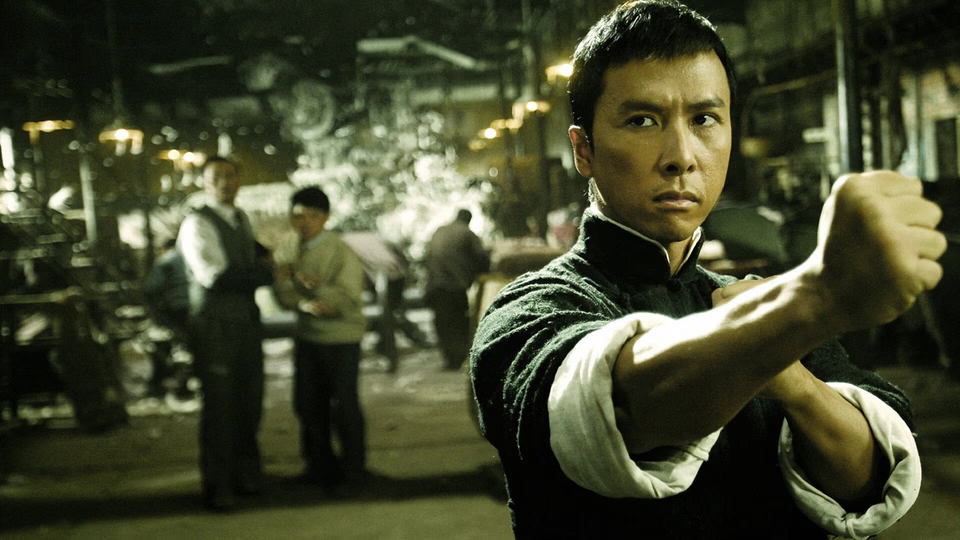Ip Man

During the second Sino-Japanese war, a martial arts master trains the workers of a cotton factory to fend off bandits, and battles a Japanese general in a martial arts duel.
Let’s just get this out of the way: Ip Man has some great martial arts sequences and if you’re a fan of the genre, it’s pretty much a must-see.
That said, take away the fight sequences, and you have a nationalistic propaganda piece very reminiscent of the US war pictures of the 1940s. From the blood-covered sack of rice, to the half-eaten potato that Ip Man saves for his family, the filmmakers do everything possible to overtly manipulate the audience’s emotions.
The Japanese are portrayed as a group of slimy, sociopathic monsters and the fictionalized Ip Man (some synopsis will read that Ip Man is a biography of the grandmaster of Wing Chun who famously taught Bruce Lee, but this character is almost pure fiction) is treated as a mythical figure, whose dual against a Japanese general single-handedly brings about the end of the Sino-Japanese war.
For a genre piece this is fine, but Ip Man could be so much more. The real Ip Man’s life seems so much more interesting than what’s on the screen, and the production values, along with star Donnie Yen’s charisma are certainly up to the task of a real biography that could have transcended the martial arts genre to deliver a picture with genuine emotion instead of the manufactured melodrama we’re given.